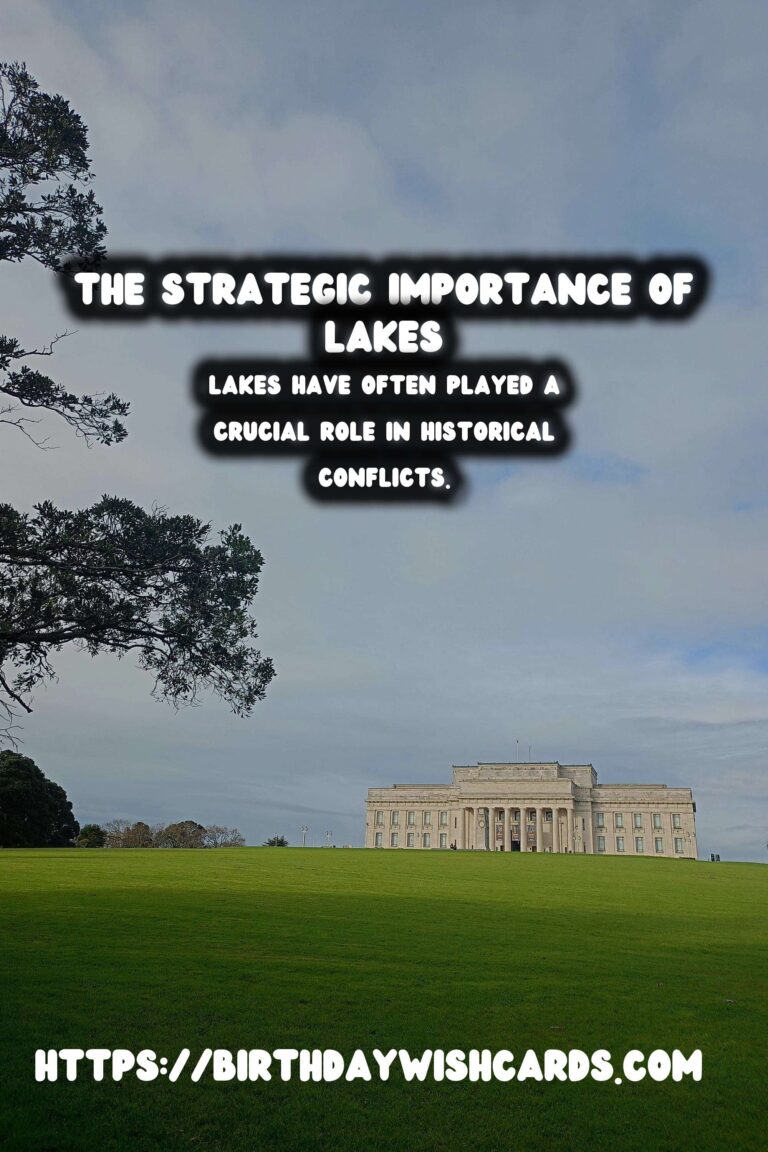
Lakes have often played a crucial role in historical conflicts. These bodies of water, known for their strategic importance, have been pivotal in shaping the outcomes of numerous battles, serving as natural barriers, supply sources, and even as battlegrounds themselves.
Lakes as Natural Barriers
Throughout history, lakes have acted as natural barriers that inhibited the movement of armies, effectively shaping military strategies. For example, the Great Lakes of North America served as significant barriers during various skirmishes and wars, including the War of 1812. The sheer size of these lakes meant that armies and navies had to develop specific strategies to navigate these massive bodies of water.
Lakes such as Lake Ladoga, located near present-day Russia, also played a significant role during World War II. The lake served as a critical barrier that affected the siege of Leningrad, impacting both the strategies of the attacking German forces and the defending Soviet troops.
Sources of Supply and Logistics
Lakes have been pivotal in providing essential supplies to troops during conflicts. Lakes play a crucial role in logistics, offering resources like drinking water and food supplies, which are vital for sustaining large armies. Moreover, transporting goods and personnel via lakes can often be faster and more efficient than overland routes, especially in harsh terrains.
The strategic use of lakes for supply purposes is best exemplified by Lake Champlain during the American Revolutionary War. This lake provided a vital supply route for both British and American forces engaged in the battle. The control of Lake Champlain was instrumental in the success of military campaigns in the area.
Lakes as Battlegrounds
Some of the most hard-fought battles in history have occurred on lakes or involved naval engagements on these waters. Lakes provide a unique theatre of war that requires different tactics and strategies compared to land battles.
The Battle of Lake Erie during the War of 1812 is a prime example, where American naval forces triumphed over the British, impacting control over the Great Lakes region. This victory was crucial for the United States to regain control of the Northwest Territory.
Modern Implications of Lakes in Conflicts
In contemporary times, lakes still influence military strategies and geopolitical stances. They continue to act as borders between regions and countries, impacting territorial claims and resource access. The control over lakes can lead to disputes, as they often hold substantial economic and strategic value due to fishing rights, tourism, and potential underwater resources.
For instance, the current tensions over the Caspian Sea, referred to as the world’s largest lake, demonstrate how lakes remain strategically significant. The Caspian Sea is not only rich in natural resources but also serves as an important area of interest for the bordering countries, affecting international relations in the region.
Conclusion
Lakes have consistently been an influential element in the history of human conflict. Their roles as natural barriers, sources of supply, and battlegrounds underscore their strategic importance. As history progresses, the significance of lakes in military and geopolitical strategies is likely to persist, making them an enduring topic of interest for historians and strategists alike.
Lakes have often played a crucial role in historical conflicts. The strategic use of lakes for supply purposes is best exemplified by Lake Champlain during the American Revolutionary War.
#History #StrategicLakes

